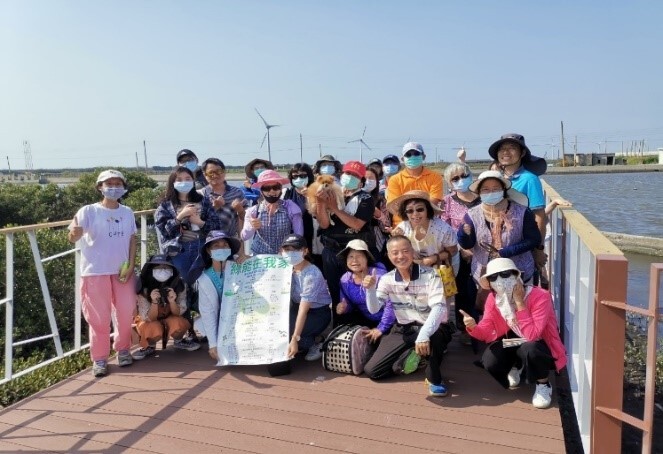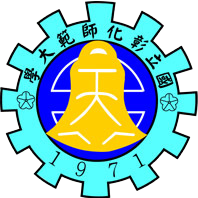SDG1.4.1 Local start-up assistance Year: 2019 or 2020
To demonstrate the power of change and to allow the growth of sustainable enterprises, NCUE uses relevant academic and government resources to offer training workshops and venues to nurture and develop enterprises. The supportive measures of NCUE are as follows:
1. NCUE combines the strengths of different units to provide enterprises with business diagnoses and problem-solving suggestions.
NCUE’s units, including the Department of Business Administration and the Environmental Education Centre, integrate the resources of academia and industry to form a cross-disciplinary team of teachers who take students to visit enterprises in Central Taiwan. NCUE selects experts from academia to join the teaching teams and hold relevant courses, workshops, and seminars to jointly provide the enterprises with business diagnoses and problem-solving suggestions.
2. NCUE established the Innovation Incubation Centre to promote new ventures and help local enterprises develop AI and green energy.
The Innovation Incubation Centre, part of NCUE’s Research and Development Department, focuses on promoting new ventures and assisting traditional industries. The Centre adheres to the national strategies through the following: actively developing such technological fields as precision machinery, smart electric vehicles, and green energy industries; providing core technologies for developing diversified platforms; gathering outstanding entrepreneurs for joint training to devise enterprise improvements; and supporting new ventures to build refined incubation networks. Such efforts enhance enterprise values, expand industry–university cooperation, encourage self-driven enterprises, and expand local industries’ advantages. Through vertical and horizontal integration and cross-industry and intra-industry alliances, the Centre’s efforts form industrial clusters and contribute to the nation’s prosperity. Together with the local government’s regional development plans, the Centre provides services and sets improvement goals in the following fields:
2.1 The Centre actively cultivates new start-ups and helps transform and upgrade traditional industries, allowing advanced enterprises to lead their counterparts in enhancing the international marketing capabilities. The Centre also helps attract venture capital investments and develops industrial clustering effects in precision machinery, smart electric vehicles, and green energy.
2.2 The Centre establishes an innovative talent cultivation mechanism. Through the executive MBA (EMBA) programmes, innovation MBA (iMBA) programmes, Information Management MBA programmes, technical and vocational education in administrative management, in-service education programmes and doctoral classes, the Centre facilitates interactions between industries and NCUE. This helps the enterprises to nurture talent, gather the forces of operators from the same industry and different industries to expand the Centre’s incubation network, and achieve the effect of entrepreneurs clustering to generate competitive energy and advantages and create business opportunities for production, marketing, and research.
2.3 The Centre brings about horizontal integration of enterprises in the same industries and vertical integration of upstream and downstream suppliers (e.g. resident enterprises and graduated enterprises) to reduce production costs, enhance international competitiveness, helps enterprises create brands for improvements in marketing and technology, and helps enterprises obtain government resources.
2.4 The Centre adheres to national strategies by actively developing such industries as precision machinery, smart electric vehicles, and green energy to foster industrial innovation and promote economic development.
For more about the measures and plans implemented by NCUE’s Innovation Incubation Centre, the Department of Business Administration, and the Environmental Education Centre for the sustainable development of local enterprises, please refer to Annexes 1.4.1A–1.4.1B–1.4.1C.
|
Link to supporting information |
Plan/policy |
Highlights |
|---|---|---|
|
Care for local industrial parks/Innovation Plans (Please refer to Annex 1.4.1A) |
Care plans: 1. Participating enterprises: 28; experts and scholars: 23; students: 67 2. New products/technology development: 11 cases 3. Technical and talent training courses: 4 sessions 4. Applications for government subsidies: 8 applications (6 approved) for a total of 5.73 million NTD 5. Patent applications and utilisation: 9 cases 6. National contests on special topics: 5 cases 7. Industry–university cooperation projects, sale exhibitions, and exhibitions of achievement: 4 cases Innovation plans: 1. Participating enterprises: 80; experts and scholars: 20 2. Technical coaching: 11 cases 3. Technical and talent training courses: 6 sessions 4. Applications for government subsidies: 4 applications for a total subsidy of 7.812 million NTD 5. Student productions on special topics and national contests on special topics: 3 cases 6. Student internships: 31 people 7. Industry–university cooperation projects, sale exhibitions, and exhibitions of achievement: 2 cases |
|
|
Department of Business Administration
|
University Social Responsibility (USR) Projects: ‘Shetou Sock Projects: Innovation, Entrepreneurship, Revitalization’ (Please refer to Annex 1.4.1B) |
1. Incubation workshops of various types: 7 2. Built an exclusive e-commerce team to provide consultation and guidance in such aspects as product photography, copywriting, and social media management 3. Hours of consultation services provided to enterprises: 240 4. Held an activity for primary and secondary schools, a camp for vocational high schools, and a sock donation event for charity 5. Helped three enterprises apply for transformation plans 6. Held activities for sock donations, DIY crafts, physical checks, and free haircuts |
|
University Social Responsibility (USR) Projects: ‘Deep Cultivation in Fangyuan’ and ‘Joining Hands in Dacheng: Changhua Twin Cities’ Industrial and Environmental Sustainability’ (Please refer to Annex 1.4.1C) |
1. Held 52 training sessions (24, 33, and 120 hours long) for environmental educators 2. Held four training sessions on food and agriculture education for local teachers and environmental educators 3. Held 10 environmental education courses and workshops on solar photovoltaics and green energy 4. Held 10 workshops related to the aquaculture industry and local cooperation 5. Actively nurtured local environmental educators and helped them implement food and agriculture education 6. Established a care team to support industrial sustainable development and held 12 preparatory meetings of experts |


